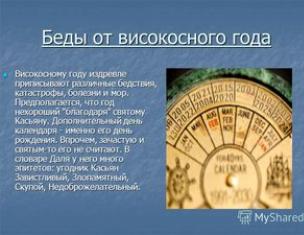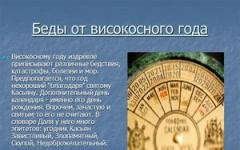In a market economy, the importance of professional skills of workers and the need for highly qualified competitive specialists are increasing. Currently, the main criteria for assessing the quality of graduate training are the presence of not only professional knowledge, abilities and skills, but also professional and general competencies. One of the effective ways to improve competence and enhance students’ cognitive activity are professional skills competitions. Competitions of professional excellence create optimal conditions for the creative self-realization of an individual, his professional and social adaptation, and for the development of a competitive specialist.
Download:
Preview:
In a market economy, the importance of professional skills of workers and the need for highly qualified competitive specialists are increasing.
The main result of the activities of the secondary vocational education system is a highly competent worker, ready for social and professional mobility, continuous education, self-development and self-improvement of one’s competencies, accelerated assimilation of innovations, rapid adaptation to the needs and requirements of a dynamically changing world. Currently, the main criteria for assessing the quality of graduate training are the presence of not only professional knowledge, abilities and skills, but also professional and general competencies. However, despite the changes being carried out in professional education, a number of problems can be identified in the system of training specialists.
One of the most important among them is the problem of incompetence of graduates of secondary vocational education: they cannot quickly adapt to changes in society, do not use the latest educational technologies in their work, and cannot fully analyze their own professional activities.
One of the reasons for the incompetence of graduates is the lack of interest in the profession and in educational activities in general. Teachers of educational institutions of secondary vocational education are asking themselves the question of how to raise the level of motivation for educational and, including, independent, creative activity of students. A high grade, praise from a teacher, victory in a competition really brings satisfaction and is a good reward for work, for the time and effort spent.
Thus, one of the effective ways to increase motivation for learning and enhance the cognitive activity of students is professional skills competitions. Holding a professional skills competition is an exciting form of competition among students. Students learn to organize their own activities, choose standard methods and ways of performing professional tasks, and evaluate their effectiveness and quality. Make decisions in standard and non-standard situations and take responsibility for them. Search and use information necessary for the effective performance of professional tasks, professional and personal development. It is professional skills competitions that create optimal conditions for the creative self-realization of an individual, his professional and social adaptation.
All groups of one profession participate in the professional skills competition. Students are placed in the same conditions, and their task is to show their professional skills. As a rule, the competition consists of a theoretical part (test tasks) and a practical task. The students' work is assessed by a jury consisting of specialists in these professions. In the process of participating in the competition, students strive to do their work as efficiently as possible, as they intend to win a prize. At the same time, after summing up the results of the competition, each of its participants can find out why the points were reduced. This allows you to perform self-analysis of the work and avoid similar mistakes in future activities. Participation in competitions of this kind allows students not only to improve their professional skills, but also to evaluate themselves in comparison with their fellow students,which, in turn, serves as a stimulus for the formation of the need for professional improvement,which contributes to the professional development of a future specialist.
Those who have not taken part in such competitions see the success of their fellow students and also strive to reach their level, realizing that this is possible. In the competition, almost every student can show a high result. This requires knowledge, dexterity, and the ability to work confidently, quickly and efficiently.
The participant who takes first place is awarded the title “Best in Profession”. At the final event, the results of all the work are summed up, the most active participants, members of the editorial board, winners, participants in professional skills competitions, etc. are awarded. These events are always massive, involving a large number of guys from this profession. Usually amateur performances are prepared, and a mini-concert takes place between professional tasks. Those present receive a lot of educational information that broadens the students’ horizons, stimulates the growth of professional skills, and strengthens the desire to learn and improve.
Thus, the educational environment, where competitive activity is integrated with study, contributes to the preparation of a qualitatively new type of specialist, in demand by modern production - a competitive specialist - professional, ready to find an optimal and effective method for solving and completing a task, adequately to the situation and time.
On November 8, a solemn award ceremony took place following the results of the Professional Excellence Competition of the SRO Association “School Without Danger” for the best organization of work in the field of security of educational organizations in Moscow.
The competition was held from April 1 to October 30, 2017 and consisted of five stages, during which the jury evaluated the participants according to various criteria. The competitors, with the support of their private security organizations, created video presentations, demonstrated theoretical knowledge and passed the stage of testing practical security skills at checkpoints.
Twenty-nine of the best professionals in ensuring the security of educational organizations were identified, from among whom six finalists were selected to take prizes.
The President of the SRO Association “School Without Danger” Sergei Saminsky in his opening speech emphasized that such a competition is not just an initiative of the organization’s leadership, but also an undertaking that is universally supported by the state. Recently, the President of the Russian Federation congratulated the winners of the international professional skills competition WorldSkills. Russia first took part in this competition in 2013. Then our team did not take a high place. Now we are leaders in the training of blue-collar professions.

The security industry has also joined this initiative. The team of the SRO Association “School Without Danger” became a pioneer in this matter. Perhaps in the future the criteria for selecting and evaluating participants in the competition, as well as its other nuances, will change. But the main thing is that it has begun.
We will continue competitions,” emphasized Sergei Saminsky. - Since the apparatus of all private security structures, a self-regulatory organization, all functionaries exist only so that the guards at the post at the right moment clearly and professionally fulfill their duties. And we will do everything to improve their skills.

The head of the working group of the Coordination Council for Security of the Moscow Department of Education, Alexey Zhuravlev, said what, in his opinion, is fundamental in the work of security.
An integral part of your job is the ability to instantly navigate complex environments. This is the most important thing: to be able to react correctly to an incident and thereby save the lives and health of those who are in the educational organization. Comparing with the situation in 2010, I can say that the level of professional training of security guards has increased. I ask you all to maintain the level you have reached now.

Sergey Saminsky noted representatives of the SRO Association “School Without Danger”, without whom the competition would not have taken place. Among them are SRO Vice President for Scientific and Methodological Work Nikolay Stepanov, Head of the SRO Professional Qualification Training Center Tatyana Zaretskaya, SRO Executive Director Maria Shapkina and others.
This event gave a lot to improve our educational process and our work in general,” said Nikolai Stepanov. - We noted both the positive qualities, knowledge and skills of our security guards, as well as those nuances that need to be paid more attention to in the future.

Tatyana Zaretskaya, who first proposed the idea of holding a professional skills competition, said that this tradition has a long history. However, she recalled that such a competition was held for the first time in the security community.
You are the best in your profession. The status of a winner is good, but it requires a lot. Therefore, I wish you further professional development, I wish you not to give up your professional positions.

The head of the expert department of the SRO Association “School Without Danger”, Vadim Yelensky, who became one of the examiners during the on-site knowledge tests of the competitors, shared his opinion about the competition.
Private security organizations were given a difficult task - to select the best employees to participate in the competition. Based on the results, we can say that they approached this in good faith and with the utmost responsibility. We truly have the best of the best.

Maria Shapkina, executive director of the SRO Association “School Without Danger”, also addressed warm words to the contestants:
The most worthy representatives of the profession have gathered here. Each of you, I emphasize, each of you, regardless of whether he took a prize or not, is already a winner. We can say with full confidence that all of you perform your job duties not only conscientiously and responsibly, but also with soul. We have repeatedly seen during inspections how respect and love children treat you with. In our opinion, this is the most important indicator of your work.


Who are these people who showed outstanding results among thousands of their colleagues, many of whom are also undoubtedly worthy of praise, who coped with anxiety, and did not get confused in the face of sometimes tricky questions from inspectors? Let's introduce them.
Third place was shared by the security guard of Euro-Alliance LLC E.V. Sergeeva and security guard of SOBR LLC private security company N.N. Zharikov. They received a bonus of fifty thousand rubles each, a diploma signed by the president of the SRO Association “School Without Danger” Sergei Saminsky and letters of gratitude from the deputy of the State Duma of the Russian Federation Anatoly Vyborny and the deputy of the Moscow City Duma Inna Svyatenko.


Second place - security guard of Private Security Company "Shield" LLC A.N. Belous and security guard of LLC Private Security Company "South-Delta" S.A. Pankov. They also received a diploma signed by Sergei Saminsky and letters of gratitude from Anatoly Vyborny and Inna Svyatenko. The cash prize was one hundred thousand rubles each.


The winners were the security guards of LLC Private Security Company "SOBR" D.P. Gamzyukov and E.A. Kovaleva. In addition to a diploma signed by Sergei Saminsky and letters of gratitude from Anatoly Vyborny and Inna Svyatenko, they received a cash prize of two hundred thousand rubles each and a trophy - a challenge cup for the winner of the professional skills competition.


Denis Gamzyukov, thanking the organizers of the event, expressed his conviction that it is impossible to stop at one competition. “We need to strengthen this experience for the sake of the most important thing - children and their safety,” he said. Elena Kovaleva expressed gratitude to the creators of the competition for giving the security guards the opportunity to prove themselves.
The real winner of the competition was the Euro-Alliance Group of Companies, several of whose representatives were among the best in their profession. The Group's Executive Director Nikolay Aksenov shared how this success was achieved.
We took this competition very seriously, conducting a thorough internal selection, one might say, an internal competition. We considered each candidate both from the point of view of his current condition and from the point of view of his ability to learn, having invested a lot of work in the preparation process. Each competition increases the prestige of the profession. Any athlete will tell you that the best training is competition. Any competition is better than classroom training. This competition is a concentration of experience and knowledge, their adjustment and understanding. Its meaning is that at the end of it we have become smarter and more professional.

All members of the jury note that during the competition they did not see anyone indifferent, and each guard put their maximum effort into this competition.
The security community needs such a competition. Its importance is evidenced by the support provided to the organizers by Russian State Duma deputy Anatoly Vyborny and Moscow City Duma deputy Inna Svyatenko, who highly appreciated the idea of such a competition. Therefore, no one doubts: next year a new competition will be held, and its winners will demonstrate an even higher level of professional skill.

Press service of SRO Association “School without danger”
Class:
In order to improve the quality of vocational training, promote blue-collar professions, and improve the forms, methods and means of industrial training, the school held a professional skills competition to identify creative youth mastering blue-collar professions.
The main objectives of the competition are to improve the professional skills of students, identify and encourage the best students in construction specialties; increasing the importance and prestige of the construction profession.
The professional skills competition among school students was held on the basis of the order of the director of the institution No. 287 “O” dated December 5, 2008. The same order approved the Regulations on the competition, the composition of the organizing committee, the composition of the jury, the plan of events and appointed a responsible administrator (deputy director for management and development). The duration of the competition is from 12/08/2008 to 01/23/2009.
The preparation and holding of the professional skills competition was carried out by an organizing committee, which included:
To evaluate the results, a jury was created consisting of:
A professional skills competition to identify the “Best in Profession” among students is held annually. In the 2008-2009 academic year, the competition took place in several stages:
1) holding a professional skills competition among students within the study group;
2) holding a competition of professional skills among students for each profession separately.
The opening of the professional skills competition was held in a solemn atmosphere on December 11, 2008 at the school assembly. The director's order to hold the competition, the composition of the jury and the organizing committee were announced, and the schedule of events was posted on the stand. The opening was accompanied by a multimedia presentation, the content of which regulated the procedure for holding the competition and historical moments of last year's competitions. Each group was given a symbolic “outfit” to participate in the competition.
In preparing for professional skills competitions by profession, a whole system of organizational and pedagogical measures was carried out:
1. Improving the educational and material base of the workshops, in particular, building materials for joiners and carpenters (plywood sheets) were purchased, gloves were purchased for masons, and products were purchased for chefs and pastry chefs.
2. The organizing committee of the competition selected a rational set of educational and production work for participants in the competition to identify the best in a specific profession.
3. The developed tasks for theoretical training of participants in the professional skills competition contained a precise formulation of the purpose of the task in accordance with the content of the educational program documentation.
4. The content and quantity of production work that had to be performed by the competition participants were clearly defined.
5. Time standards for completing work have been established.
6. The capabilities of workshop equipment, the degree of preparedness of students, the demand for manufactured products in the daily life of the school, and the amount of material covered in special subjects were taken into account.
7. The scope of work performed was selected from the list of trial qualifying works in the profession for category IV.
8. The necessary educational and technical documentation was developed. Every student was provided with it.
Before the start of each profession competition, a ceremonial formation of participants was held. The deputy chairman of the jury announced the competition tasks to the competition participants and handed over envelopes with tasks. The initial stage included a theoretical task in the form of a test for knowledge of special technology, terms, materials science by profession, the second stage was the implementation of a production task.
The results of the professional skills competition for the best student in the profession were summed up by the jury through open voting. Members of the competition jury assessed the practical work of the competition participants and the level of their theoretical training within the limits established by the competition tasks. During the competition, jury members monitored the correctness of work practices, technological literacy of work, time required to complete tasks, and compliance with labor protection and safety requirements.
The winners of the competition were determined based on the best performance in completing the competition tasks. The main criteria for assessing the results of completing competition tasks were:
- labor productivity and quality of completed tasks;
- level of theoretical training;
- application of rational techniques and methods of work;
- fulfillment of student time standards (production) for the competition task;
- the degree of production independence of the student when performing competitive tasks; rationality of labor and workplace organization;
- compliance with labor safety requirements when performing competitive tasks.
If the indicators established for the competition were equal between two participants, preference was given to the student with the best indicator in industrial training.
The competition jury drew up nine protocols on the results of the professional skills competition, reporting the results and indicating the winners.
1. Based on the results of the intra-school competition “Best in the profession “Master of Finishing Construction Works” among first-year students, it was decided to award:
2. Based on the results of the intra-school competition “Best in the profession “Master of finishing construction works” among the 2nd and 3rd year students, assign:
3. Based on the results of the intra-school competition “Best in the profession “Master of Civil Works””, among students of the 2nd and 3rd year, assign based on the final statement:
4. First year students (group No. 2) were awarded certificates of encouragement:
“For strong knowledge of the theory of stone work”:
Grigoriev Nikolay,
Volkov Andrey,
Vasiliev Dmitry.
"For the desire to win":
Nikitin Sergey,
Krdyshov Sergey,
Kudryashov Arthur.
5. Based on the results of the intra-school competition “Best in the profession “Master of Joinery and Carpentry””, assign based on the final sheet:
6. Based on the results of the intra-school competition “Best in the profession “Auto Mechanic” among the 2nd and 3rd year students, assign:
7. Based on the results of the in-school competition “Best Chef by Profession”, award:
The winners of the competition who took prizes were awarded certificates, they were awarded the title “Best in Profession” and were awarded certificates and valuable prizes during the final competition “Rainbow of Professions”.
Creative competitions were aimed at identifying talented youth through intensifying the work of the self-government body in the group, implementing tasks to unite the student body, revealing the facets of students’ talent, as well as developing students’ supra-professional competencies.
In the “My Profession” wall newspaper competition, the places were decided to be distributed as follows:
In the nomination “Exhibition of technical creativity of students within the framework of the professional skills competition “Best in Profession 2009”” places were distributed as follows:
2. In a research competition
In accordance with the decision of the jury of the Resonance competition, approved Protocol of November 24, 2018, materials of the 1st (correspondence) round of the review (competitive video recordings) were evaluated according to 4 criteria:
1. compliance with the goals and objectives of the competition;
2. content, information literacy in the presentation of educational material;
3. originality of pedagogical solutions;
4. teacher’s speech culture.
Each criterion was scored on a 3-point scale. It was allowed to additionally reward the participant with 1-3 points for demonstrated qualities that were not reflected in the criteria (as a special opinion of a jury member).
Based on the results of the first (correspondence) round of the review:
- competitors who scored from 0 to 6.99 points were awarded the title “Competition Participant”;
- competitors who scored from 7.00 to 8.99 points were awarded special diplomas;
- Contestants who score 9.00 points and above are allowed to participate in the II (in-person) round of the competition.
Reviews of the 2nd (in-person) round of the competition will be held on December 1 and 8, 2018 at the site of the State Budgetary Educational Institution of Educational Institutions for the Central Educational Institution and the International Educational Establishment “Radost” from 10.00 to 18.00.
From 18.00 (!) on November 26, registration for a convenient time to participate in the face-to-face stage is available via the link.
The duration of an open lesson (rehearsal, master class) at the full-time stage of the competition according to the regulations will be 20 minutes; an additional 10 minutes are allocated for an interview with members of the jury, during which the contestants answer questions about their professional activities.
COMPETITORS WHO SCORE 9.00 POINTS OR HIGHER
(ALLOWED TO PARTICIPATE IN THE II PERSONAL ROUND OF THE COMPETITION)
- Afonina Olga Evgenievna
- Varlamova Victoria Valerievna
- Vasilyeva Svetlana Anatolevna
- Volkova Natalya Valerievna
- Gelman Yulia Grigorievna
- Gemusova Daria Anatolyevna
- Guseva Svetlana Ivanovna
- Zharova Elena Valentinovna
- Zhuravleva Ulyana Nikolaevna
- Ivashkina Irina Anatolevna
- Ionova Svetlana Yurievna
- Konovalova Galina Vasilievna
- Kostomarov Rostislav Sergeevich
- Kryukova Natalya Yurievna
- Liring Svetlana Evgenievna
- Lishchenko Anastasia Viktorovna
- Maklakova Natalya Vladimirovna
- Moskovchuk Anna Alekseevna
- Nezadorova Tatyana Evgenevna
- Pereverzeva Irina Anatolyevna
- Poydo Maria Ivanovna
- Tarasova Elena Andreevna
- Chistyakova Anastasia Alexandrovna
COMPETITORS WHO SCORE FROM 7.00 TO 8.99 POINTS
(BY DECISION OF THE JURY AWARDED SPECIAL DIPLOMA)
- Anisimova Tatyana Viktorovna
- Burmistrova Tatyana Petrovna
- Vlasova Elena Alexandrovna
- Vlasova Olga Vasilievna
- Goryacheva Olga Vladimirovna
- Ivanova Anastasia Lvovna
- Kurdyukova Svetlana Vladimirovna
- Kurzanova Zinaida Yurievna
- Please Margarita Anatolyevna
- Pozhinailo Margarita Vladimirovna
- Potapova Anastasia Viktorovna
- Rozanova Irina Sergeevna
PRESIDENT OF THE JURY:
Plenipotentiary expert of the Council for Grants of the President of the Russian Federation to support creative projects of national importance in the field of culture and art, member of the jury of the All-Russian competitions “Teacher of the Year of Russia”, “I Give My Heart to Children”, Ph.D., Professor of the Federal State Autonomous Educational Institution of Further Professional Education "Center for the Implementation of State Educational Education" politics and information technology”, recipient of medals K.D. Ushinsky, "Patriot of Russia", medals "For outstanding services" of the Russian Academy of Education
Lidia Petrovna DUGANOVA
MEMBERS OF THE JURY:
Honored Teacher of Russia, Excellence in Public Education, laureate of the Moscow Grant competition in the field of innovative technologies in the field of music education
Nadezhda Vasilievna SEMINA
Methodologist of additional education of the highest category, member of the jury of the competition “Teacher of the Year” in the nomination “Teacher of Additional Education”, member of the Expert Council of the competition of original programs of additional education
Elena Nikolaevna FIGINA
1. General Provisions
1.1. The Moscow city competition of professional skills of additional education teachers “Resonance” 2018 (hereinafter referred to as the “Competition”) is dedicated to the 100th anniversary of the system of additional education for children in Russia - a special type of education aimed at the comprehensive development of intellectual, spiritual, moral, physical, creative and professional child's needs.
1.2. The competition is held in September - December 2018.
1.3. The competition involves:
Identification and dissemination of effective educational practices in the field of mass musical and aesthetic education of children and youth (including children with disabilities);
Creating conditions for the exchange of professional experience between additional education teachers implementing relevant educational programs;
Support for additional education teachers who reveal the educational and culture-forming potential of musical art in working with children, adolescents and young people.
1.4. The competition is held within the framework of the Moscow city comprehensive targeted youth education program “The Children of Moscow Sing.”
1.5.Purpose of the competition- identification, support and development of effective educational practices and pedagogical technologies in the field of mass musical and aesthetic additional education of children and youth.
1.6.Competition objectives:
- Identification and retransmission of the achievements of additional education teachers implementing artistic and social-pedagogical programs in the field of musical and aesthetic education of children and youth.
- Popularization of musical and performing arts among children and youth as an effective medium for the artistic, civil, patriotic, spiritual and moral education of the younger generation.
- Support for additional education teachers who implement the most effective technologies for mass musical and artistic education of children, adolescents, and young people, broadcasting their achievements in the open educational space of the Russian capital.
- Transmission of pedagogical ideas for updating the content of additional musical and aesthetic education for children and youth.
- Support for teachers implementing programs for additional musical and aesthetic development in working with children with disabilities.
- Development of an integral system of mass musical education in the space of general and additional education in Moscow.
- Development of interaction and integration of resources of the city’s general and additional education systems.
- Attracting the attention of government authorities, commercial organizations, and the general public to the educational and socializing resources of the system of mass musical and aesthetic additional education for children and youth.
2. Organizers of the competition
2.1. The founder of the Competition is the Organizing Committee of the Moscow City Comprehensive Targeted Program for Youth Education “The Children of Moscow are Singing”.
2.2 The direct organizer of the competition is the GBOU DO “Center for Creative Development and Musical-Aesthetic Education of Children and Youth “Joy” - the leading institution of the city of Moscow in the field of mass musical-aesthetic and artistic education of youth, the operator of the Moscow Department of Education for the implementation of the Moscow City Comprehensive Target Program education of youth “The children of Moscow are singing.”
2.3. Official information about the Competition, its regulations and results is posted on the website of the City Program “Moscow Children Sing” ( singchildrenofmoscow.rf ).
3. Participants of the competition
The Moscow city competition of professional skills of additional education teachers “Resonance” is attended by teachers who implement additional general education (general developmental) programs in the field of musical and aesthetic education of children and youth and work with creative groups and students in the system of institutions subordinate to the Moscow Department of Education.
4. Competition nominations
The competition is held in 11 categories:
- "Leaders and choirmasters of choirs"
- "Leaders of academic vocal ensembles"
- "Leaders of pop vocal ensembles"
- "Leaders of vocal and instrumental ensembles"
- "Leaders and choirmasters of folklore groups"
- “Leaders of instrumental groups of the academic direction”
- “Leaders of groups of Russian folk instruments”
- “Leaders of instrumental pop groups”
- “Teachers of associations of musical-aesthetic, musical-theoretical development of children” (classes in solfeggio, listening to music, rhythm, collective singing and playing music on elementary instruments, etc.)
- “Teachers of individual classes in the field of musical and aesthetic education of children and youth (classes in learning to play musical instruments, individual vocals, composition, etc.)
- “Teachers of associations for the musical and aesthetic development of children with disabilities”
5. Conditions and procedure for the competition
5.1. Moscow city competition of professional skills of additional education teachers “Resonance” takes place in 2 rounds :
- 1st round - correspondence;
- Round 2 - full-time.
5.2. For the first round, participants provide short summary , and video that presents the practice of their work with children's creative groups, students (according to the declared nominations). These can be fragments of classes, master classes, rehearsals and other forms of educational work.
5.3. Requirements for competition materials of the 1st round:
The teacher himself, as well as the student(s) with whom he works, should be clearly visible in the video recording.
Duration of video recording: 10-15 minutes. Videos of longer duration will not be considered.
Videos are posted on open video hosting sites: YouTube, Rutube or uploaded to file hosting services; links are sent to the Organizing Committee of the competition.
In the resume, the competition participant lists his main creative achievements, the merits of children's creative groups, the students with whom he works, and briefly characterizes the basic principles, methods and pedagogical technologies that he uses in educational practice. The resume should not exceed 3,000 characters including spaces.
5.4. Admission to participation in the second round of the Competition is carried out by decision of the competent jury.
5.5. The participant who, by decision of the jury, has passed to the second round of the competition, conducts open lesson with students (rehearsal, master class) according to a special schedule approved by the Organizing Committee, at one of the venues (in agreement with the Organizing Committee):
On the basis of the educational organization in which he works;
On the basis of the educational organization of the curator of the Moscow Children Singing Program in the district (in agreement with the curator);
On the basis of GBOU DO TsTR and MEO "Joy" (Mikhalkovskaya St., 22).
5.6. Requirements for competition materials of the 2nd round:
An open educational session (rehearsal, master class) should comprehensively represent the professional competencies of the teacher, demonstrate established techniques in solving special educational problems, overcoming difficulties by students, and reflect the nature of the relationship with students.
Before the lesson, the participant provides the jury members with open lesson plan (rehearsals, master classes). The plan includes: the participant’s full name, his place of work, the full name of the event, purpose, objectives, lesson notes.
5.7. Duration of an open lesson (rehearsal, master class): 30-45 minutes. The specified time includes a short interview with members of the jury, during which the contestants answer questions about their professional activities.
5.8. The jury fully examines the open classes of all competition participants who made it to the 2nd round and makes a final assessment according to the following criteria (see paragraph 6 of these Regulations).
5.9. Following the results of the competition, an educational and practical conference is held with an award ceremony for participants and winners.
5.10. Approximate schedule of Competition events:
|
Event |
Deadlines |
Location |
|
Submitting applications for participation in the professional skills competition for additional education teachers “Resonance” |
remotely, website of the Moscow Children Singing Program ( singchildrenofmoscow.rf) |
|
|
I(correspondence) round of the competition - qualifying review of presentation videos and resumes of teachers sent to the competition |
remotely, GBOU DO TsTR and MEO "Joy" |
|
|
II(in-person) round of the competition - viewing of open lessons, classes, rehearsals, master classes of participants who took place inIIround of the competition |
sites of educational organizations in Moscow, GBOU DO TsTR and MEO "Joy" |
|
|
Final educational and practical conference. Award ceremony for participants and winners of the competition |
11.00 |
White Hall GBOU DO TsTR and MEO "Joy" |
6. Criteria for evaluating competitive performances
1. Compliance with the goals and objectives of the competition.
3. The ability to establish emotional contact, partnership, creatively productive relationships with students.
4. The ability to organize interaction between students (create conditions for the development of communication skills, partnership skills and educational interests of each student).
5. The ability to create and maintain a high level of motivation and intensity of educational activity of students in the classroom.
6. The teacher’s own performing and professional skills in the represented field of creative activity.
7. Originality of pedagogical solutions, skill and resourcefulness in overcoming problematic situations.
8. Speech culture of the teacher.
9. Depth and accuracy of analysis of the training session, reflection on the results of one’s activities (for the full-time tour).
7. Competition jury
7.1. The jury of the Resonance competition includes famous figures in Russian education and performing musicians.
7.2. The composition of the jury of competitions in nominations will be announced additionally.
8. Regulations for evaluating competitive performances
8.1. Competitive performances of participants are assessed according to a rating system. The rating is formed from the sum of assessments of competitive performances in accordance with the above criteria (clause 6 of these Regulations) according to a 3-point rating system for each criterion, as well as taking into account the possibility of receiving additional points as a “dissenting opinion of a jury member.”
8.2. The maximum number of evaluation points for the 2nd (full-time) competitive performance by each jury member is 30 points:
Based on the totality of criteria - 27;
As a “dissenting opinion of a jury member” - no more than 3.
Grand Prix (29.00 - 30.00 points);
Laureate of the 1st degree (27.00 - 28.99 points);
Laureate of the 2nd degree (25.00 - 26.99 points);
Laureate of the III degree (23.00 - 24.99 points);
Diploma holder (20.00 - 22.99 points);
Participant (9.00 - 19.99 points).
8.4. The decision of the jury is documented in a protocol. Appeals from jury decisions are not accepted.
8.5. The results of the competition are published on the website of the City Program “Moscow Children Sing” (singchildrenofmoscow.rf).
8.6. The jury has the right to award the participant a special diploma for professional teaching competencies clearly demonstrated at the competition.
9. Legal rules for participation in the competition
9.1. By submitting an application and materials for the “Resonance” competition, the teacher indicates agreement with these Regulations and guarantees that:
According to these competition materials, he has no obligations to third parties that would prevent the publication of materials on the sites of the Organizing Committee of the competition, the copyright law has been complied with;
All materials that do not have links to any sources are copyrighted;
Photos and videos of minors are posted with the consent of their legal representatives (parents, guardians, etc.);
The author(s) grant(s) the right to the Organizing Committee of the festival-competition to use materials, video recordings of the teacher’s competitive performance or part thereof indicating the author(s) at its discretion without additional agreement with him/her and without paying royalties in his projects, in including for the purpose of popularizing this competition, broadcasting the best teaching practices in the press, at various conferences and business meetings, as well as in the form of publications.
9.2. In case of recorded copyright violations (i.e. borrowing of other people's works or their significant fragments without reference to authorship), the competition performance is not considered by the jury.
Ivan Kostrov,
BodroGordo, Creative Director
In small companies, people compete, as usual, for their own percentage of sales or a bonus from implementing a plan and achieving the overall success of the company. Competition in small organizations makes sense when representatives of the same profession compete. Otherwise, the “competition” will be unfair.
In some large companies, especially those with democratic management, there is a practice of competition within departments or the entire organization. What is especially noteworthy is that this is not directly called a contest or competition, but is neatly built into the corporate culture. And this is probably the best thing I've seen inside organizations. Let's look at how the Swedish company IKEA implements this, where today they employ about 20 thousand people, and each store has about 300 employees.
The entire company is divided into departments, departments into departments, departments into business zones. Each of the business zones has its own plan for the day, week (more important than the day) and month, which is combined into the overall store plan. Employees do not have a personal sales plan, which allows them not to compete with each other, but to organize themselves to achieve a common goal. The department can distinguish itself from the rest of the store by increasing the percentage of achievement of weekly goals and contribute to the common cause - the execution of the sales plan for the entire store. The result of an individual will not be noticeable against the background of the entire store or even the department, although the employee as a whole has leverage to influence visitors to make more purchases.
With a certain frequency, employees, including managers and top managers, participate in rotation and work in neighboring departments of the same department. And they even migrate across departments, for example, the head of furniture can change places with the head of related products. Thus, all employees become interchangeable in case any of the departments needs help to achieve, again, the general goal of the store. This is an important aspect; it fosters collectivism.

Anna Molchanova, deputy
Executive Director of the National Roofing Union
The goal of participating in the competition is to win. It's like in sports. And “training” the participants to win is no less important here. Example: in 2009 in St. Petersburg, the National Roofing Union hosted the IFD Roofing Championship. Everyone understood our technological lag in the tile category from the leaders - the Germans, the Swiss, the Austrians. We invited a German teacher who came and taught our team. When the guys took first place, there was such an intensity of passion, such jubilation! They still remember it.
To what extent are professional skills competitions and employee motivation and engagement related (if at all)? Directly. Actually, the goal is motivation. Another thing is that some competitions turn out to be so poorly organized, so boring and formal, that the effect turns out to be the opposite. Here a lot depends on the organizers and their experience.

Along with professional skills competitions traditionally held by companies, there are competitions and championships for students and young professionals.
When applying for participation, each contestant has a specific goal. However, there are key motivational factors regardless of age and status: whether you are an undergraduate student or a specialist with experience in the company. These “drivers” often have deep psychological roots.
Firstly, it is an opportunity to test yourself in a “safe” environment. In conditions of voluntary participation in the competition, participants are insured against the inevitable assessment of knowledge and skills. The ideal situation is to try without fear of making mistakes or “being bad.” Moreover, if the result of the competition satisfied the participant himself, he can present it to interested parties (indicate it in his resume, show it to the employer or teacher at the department).
Secondly, this is a chance to show yourself and realize your ambitions. There may not be a desire for material reward; it is enough to receive recognition of skills and talents. After all, the need for praise, approval and recognition is a basic psychological need of a person.
Thirdly, this is an opportunity to establish yourself as a professional and begin (and for already practicing specialists, continue) a successful career in the field of interest. For example, those who show the best results in the ACCA-IFRS PROFESSIONAL Student competition will be offered internships or even vacancies by partner employers. Thus, a professional competition becomes a “social elevator”: in a short time you can move from the category of an ordinary student to a sought-after young specialist

Konstantin Gozman, CEO of the agricultural holding
"Doronichi" Kirov region
The purpose of any professional skills competition is to improve the skills of a specialist, his professional qualities, raising the bar for achieving certain business goals and objectives, developing new projects and ideas for the development of business processes, plus assessing professional qualities in order to promote a specialist on the career ladder.
The approach will undoubtedly be different - if in managerial positions and management positions we introduce clear KPIs with the definition of indicators and established deadlines for their achievement, then for the line personnel of the agricultural sector and processing enterprises we hold team and personalized competitions with a clear system of criteria. All this works to develop the corporate culture of the holding, when staff not only individually, but also in a group of colleagues can develop, apply new advanced experience and knowledge to business processes and, what is important, maintain a great desire for development in people.
A correctly set task of a professional excellence competition can contribute to the development of a unity of views on business processes, the development of team spirit and dedication to the enterprise in achieving results.









